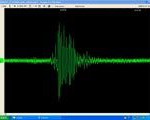Category Science & Technology
Curiosities: Why do we need leap days?
Leap days appear every four years or so, including this year, and they are needed because one orbit around the sun does not occur in an exact number of days, says Jim Lattis, director of UW Space Place, in the UW–Madison astronomy department.
Open forums seek campus, community views on next chancellor
Three public forums designed to elicit campus and community perspectives on the qualities and talents needed in the University of Wisconsin–Madison's next chancellor will be held during the coming month.
Foundation awards grants to six states to improve addiction treatment
The Robert Wood Johnson Foundation (RWJF) has awarded $2.2 million in grants to six state-provider partnerships through Advancing Recovery: State/Provider Partnerships for Quality Addiction Care, the foundation's initiative to improve the quality of alcohol and drug addiction treatment in the United States by promoting the use of evidence-based practices.
Undergraduate inventors to compete Feb. 11 and 12
Coming soon to the University of Wisconsin–Madison: new solutions for ice fishermen, potato farmers, tailgaters, laptop junkies and airlines - all invented by undergraduates.
Hot subjects—BSE 375: ‘Biorefining: Energy and Products from Renewable Resources’
Solving the energy crisis has been the topic of conversation for consumers, researchers and politicians alike, particularly since the price of oil reached $100 a barrel earlier this month.
Photo, seismograph from Mendota ‘Ice Quake’ posted
The shaking felt Thursday afternoon in areas near Lake Mendota was most likely an ice quake, according to University of Wisconsin–Madison geologists. A tremor was recorded by a geology department seismometer at 12:50 p.m. Thursday, Jan. 31, 2008, and lasted approximately two or three seconds.
T cell immunity enhanced by timing of interleukin-7 therapy
That the cell nurturing growth factor interleukin-7 can help ramp up the ability of the immune system to remember the pathogenic villains it encounters is well known.
Unique whey protein is promising supplement for strict PKU diet
Individuals with a rare genetic condition known as phenylketonuria, or PKU, receive a difficult-to-follow prescription. They must severely limit their consumption of protein, completely avoiding mealtime staples such as meat, cheese and even bread. Not surprisingly, for many, diet is a constant struggle.
Geology professor drills into earth-shaking questions
Two months aboard an ocean-going ship might sound like a luxurious vacation. With 16-hour workdays amid the clamorous hubbub of an industrial drilling rig, however, Harold Tobin’s recent voyage was far from relaxing. Tobin, an associate professor in the geology department, sailed last fall into the western Pacific in a quest to peer into the heart of one of the most active earthquake zones on the planet.
Writer’s Choice: Connections between visual, science explored
When visual culture is mentioned, molecules, materials science and technology do not often come to mind. But exploring the possible intersections between the visual and science is the focus of a conference organized by the Visual Culture Center at UW–Madison. “Visualizing Science,” to be held Feb. 7–8, is the latest in the center’s series of public conferences that explore visual culture, part of an ongoing collaboration among scholars from sciences, arts and humanities.
Particle accelerator may reveal shape of alternate dimensions
When the world's most powerful particle accelerator starts up later this year, exotic new particles may offer a glimpse of the existence and shapes of extra dimensions.
With a jolt, ‘nanonails’ go from repellant to wettable
Sculpting a surface composed of tightly packed nanostructures that resemble tiny nails, University of Wisconsin–Madison engineers and their colleagues from Bell Laboratories have created a material that can repel almost any liquid.
New Antarctic ice core to provide clearest climate record yet
Ice Coring and Drilling Services at UW–Madison built and is operating a state-of-the-art, deep ice-coring drill that is the engine behind an unprecedented Antarctic research project to record greenhouse gas levels over the last 100,000 years. The project completed its first year at the West Antarctic Ice Sheet Divide.
Professor helps schools meet the demands of high-stakes accountability
Richard Halverson, an education leadership and policy analysis professor, is focusing his research on examining how schools are approaching the tough standards established by the federal No Child Left Behind law.
UW-Madison joins largest climate change teach-in in U.S. history
On Jan. 30 and 31, the University of Wisconsin–Madison will participate in Focus the Nation, an unprecedented teach-in on global warming solutions with the aim of preparing millions of students to become leaders in responding to the challenge.
Campus learns about building plans at town hall meetings
Throughout the month of October, the UW–Madison and the Wisconsin Alumni Research Foundation hosted a series of town hall meetings on campus to inform the university community about the latest building plans for the Wisconsin Institutes for Discovery.
Bioethicist Fost debates use of steroids in sports
Norman Fost, professor in the departments of pediatrics and medical history and bioethics, and director of the Program in Bioethics, particpiated recently in an Intelligence Squared U.S. debate as an advocate for the motion “Should We Accept Steroid Use in Sports?”
Low vaccination rate of U.S. puppies and kittens poses larger risks
It's hard to believe that in an advanced country like the United States, fewer than half of all puppies and kittens are being vaccinated. Yet that's exactly what was found in a study recently completed by UW–Madison and Dane County veterinarians.







